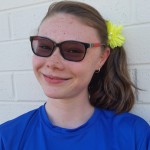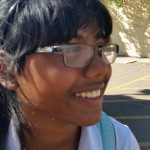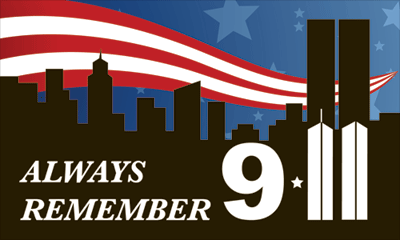By Elizabeth Hollman
No one could have predicted that Tuesday that in a few short hours, the clear blue New York skyline would be covered in smoke. No one could have predicted that 16 years later, the world would still feel the effects of that day. The September 11th terrorist attacks still hold residence in the hearts and minds of those who lived through them, and in the psyche of the generation that came after.
I interviewed several of our students and staff about that September day. Here are their stories.
“When something like that happens, you tend to remember,” says Dr. Wayne Porter, Tempe Prep’s Headmaster. “I was at my house, watching the news. I had just gotten back from taking my boys to school. Seeing it on TV and seeing actual footage of it happening, it was shock and dismay that anyone would even come up with doing something like that. By the time I saw it on the news, I knew that it wasn’t an accident. At the time I was in grad school. I remember going the next day, and it was all the talk of everyone at school.”
Ms. Tobin, a ninth and eighth grade science teacher, had a very different story. “On September 11th I was teaching school in West Hartford, Connecticut. We were getting ready to watch a video and we turned on the TV. Pretty soon the whole school was just watching what was going on. There were a lot of parents that came and got their kids from school, because they were quite frightened by the whole thing and plus, we lived relatively close to the city … All the airplanes, all the commercial airlines, everything was grounded. There was a no-fly zone over the United States a few days after 9/11. If anything was flying, it did not belong to us.”
Mr. DeCiancio, the middle school Speech and Debate coach, says, “I was in shock after the first plane hit the WTC [World Trade Center]. I was watching live news coverage when the second plane hit, so I actually saw it as it was happening. It was the most shocking thing I’ve ever experienced. I knew immediately that everything was about to change forever.”
Yet how has this one moment in history altered our world, and the people who live in it?
“It’s cost us an awful lot of money,” answers Mr. Macdonald, a seventh and eighth grade history teacher. “It’s left us still involved in two wars. We are somewhat safer than before. I feel like now politicians pebble us with the idea of security, security, security, but we can never be totally secure. Each little step takes away a little bit of liberty.”
“I think this generation has learned to be more cautious than prior generations, due to the fact that they have grown up in a world with heightened security and the threat of terrorism,” remarks Mr. DeCiancio.
Dr. Porter agrees. “You have never known going to an airport and not having security checks. You’ve never known being able to greet a passenger all the way to the gate and not having to be patted down. You live in a much more vigilant world than we had to live in before.”

Chari Van Wyk, an eighth grader, states that, “It’s made a lot of people afraid. People started assuming, ‘Oh you’re Muslim, you must be a terrorist.’”

Nishat Ahmed, also an eighth grader, is very passionate about the topic, seeing as she practices Islam herself. “People are now judging Muslims. They have this feeling of sadness and grief that they want to take out on us … ISIS is not Muslim. My religion doesn’t say to kill, it says to be brothers with everybody.”
Ms. Tobin notes that “sometimes in our society we brush a lot of things under the carpet. So it’s brought a lot of things out that were already there, but in that regard, if it starts a discussion, that’s good. 9/11 just highlighted an issue that brings to light some of the foreign policy we had in the Middle East. I don’t know if it’s started a more thoughtful dialogue. It should.”
Almost 3,000 people were killed in the September 11th attacks. It was an unspeakable tragedy that doubtlessly left an impact on the people who lived through it.
“It makes me sad, because I remember what the world was like before 9/11.” says Mr. DeCiancio.
“I think it made me do a little more research, and learn more historically about the events that lead to something like that, that tends to be more of how I do things, especially as a science person. I still don’t think I know a ton about the history of the Middle East. I know we’ve had some tangled relationships for decades in the Middle East … I don’t condone terrorism in any way, shape, or form, but I still try to understand all of the fine details of what’s going on. It’s not black and white, not in terms of if terrorism isn’t good, but what are the motivators?” shares Ms. Tobin.
“I didn’t really realize that there were people that would do things like that. You hear about things that happened, say in the Middle East, and they’re so far away that it doesn’t really register. But when it happens here, in your own country, you realize there’s real hatred and that people can do some really bad things. It’s made me a little bit sad. I always try to be an optimist, to think the best of people, but clearly there are bad people in the world,” Dr. Porter reflects.
Mr. Macdonald, however, has a different perspective. “I grew up with the British military being targets for Irish terrorism. I grew up in a military family. We lost friends to terrorism. This was just more of the same for me.”
Chari Van Wyk recalls her mother’s experience: “My mom, she said that she was home the day that it had happened. She turned on the TV. She was in South Africa at the time, so she wasn’t affected, but she felt very sympathetic. It caused sadness all over the world, really.”
Moreover, Dr. Porter says, “The world is a much smaller place than it used to be. We know a lot more about what’s going on in other countries and we feel for them, [such as] in Paris and Germany and England when they have attacks we hear about. We can empathize more with them because we’ve had the same thing happen here. It united the world in saying ‘Terrorism is bad.’ Now that we’ve all been affected, let’s try and stamp it out.”
